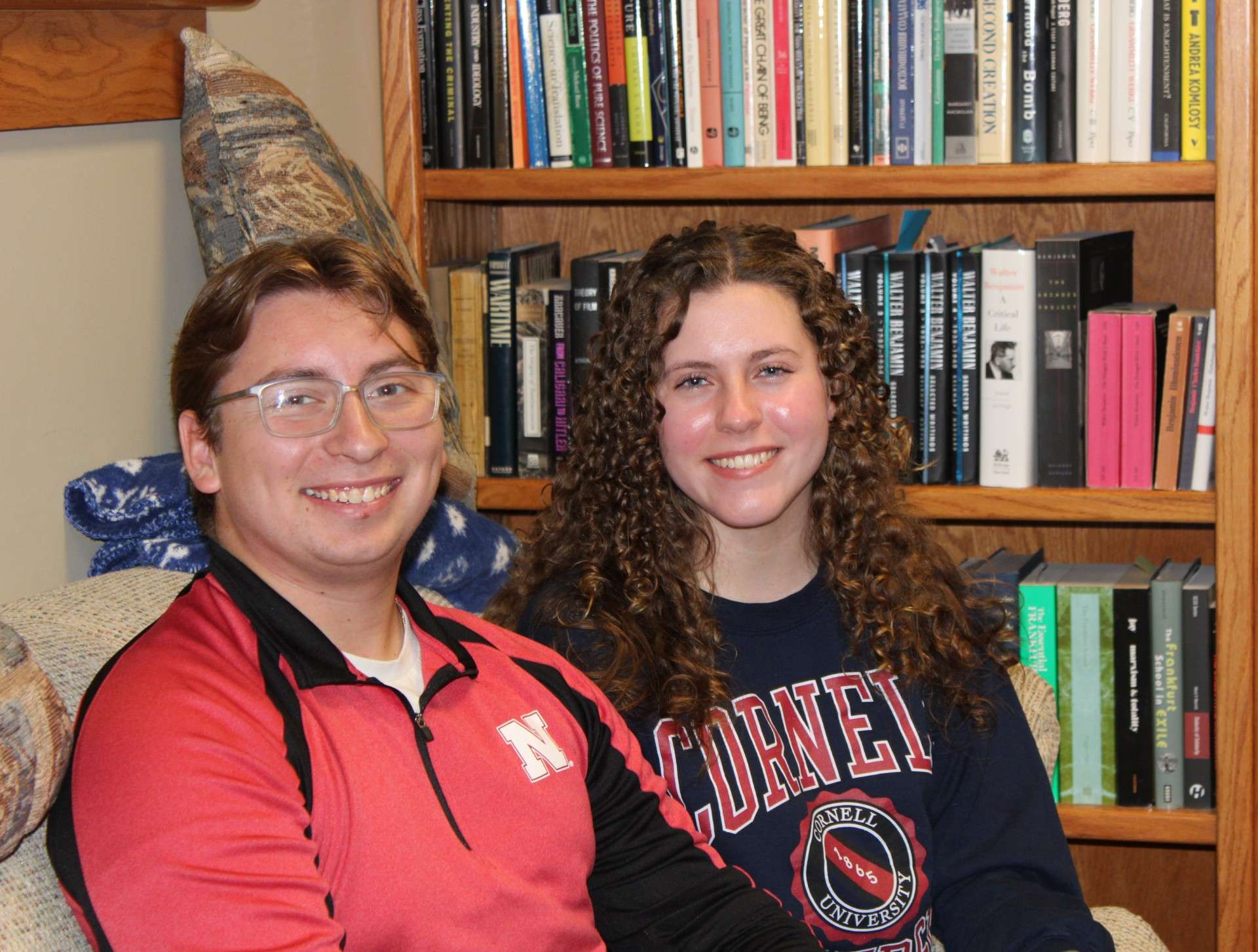
FHSU University Communications
As they prepared to enter their senior year at Fort Hays State University (FHSU), Honors College students Hazel Frans and Eric Moon had the chance to “test the waters before diving in” through competitive summer research internships funded by the National Science Foundation’s (NSF) Research Experiences for Undergraduates (REU) program.
Frans, a biology major and graduate of FHSU’s Kansas Academy of Mathematics and Science (KAMS), spent her summer at Cornell University, where she participated in a research project on cold tolerance in maize. The long-term goal of the research, she explained, is to make corn more resilient to cold temperatures, expand the growing season, and prevent crop loss due to early spring freezes.
“Ultimately, after we did our initial research, our goal was to take the mutations or knockouts of the genes that we were studying and put them in maize and see how they reacted,” Frans said. “So, we were testing the waters before we dove in.”
Alongside her rigorous research schedule, Frans took time to explore the culture and architecture of New York state, from waterfalls to art museums to historic landmarks.
Frans has been actively engaged in research throughout her undergraduate years. She presented at the Kansas Idea Network of Biomedical Research Excellence (K-INBRE), received a grant to continue her research as a K-INBRE Star Trainee, and earned an Award of Excellence at the 2025 K-INBRE Symposium for her poster titled Impact of CRISPR-induced Mutations on Arabidopsis thaliana Gene APETALA3 Sites AP3-3 and AP3-5.
Dr. Tara Phelps-Durr, chair of FHSU’s Department of Biological Sciences, has mentored Frans and suggested that she apply for the summer REU program.
“Dr. Phelps-Durr really paved the way for me to apply to these internships,” Frans said. “I didn’t know they existed until she suggested I apply.”
“Hazel is an outstanding student, and it’s been a pleasure working with her,” Dr. Phelps-Durr said. “At FHSU, we are fortunate that we can provide students with undergraduate research experiences that prepare them for success beyond our campus.”
Moon, a mathematics major, completed his REU at the University of Nebraska–Lincoln, where he used simulation software to model traffic through work zones. His project explored 45 different scenarios based on an active work zone in Nebraska City.
“I had never done anything like this before,” Moon said. “I don’t know if it’s enough to pull me away from pure theoretical applications, but it would be nice to do something like network analysis in the traffic engineering area on a more broad scale.”
Despite entering the program with minimal experience, Moon quickly learned Python programming to conduct his research. The experience, he said, broadened his perspective and provided valuable preparation for graduate-level study.
Moon has also pursued undergraduate research prior to his REU experience. He co-authored a paper on irreversible k-threshold processes in corona and double corona product graphs, posted on arXiv in 2025, and is now preparing it for journal submission. He presented this work at the Kansas Section of the Mathematical Association of America and FHSU’s Scholarly and Creative Activities Day (SACAD) and continues his research in graph theory under the mentorship of Dr. Soumya Bhoumik and Dr. Paul Flesher.
Both Frans and Moon credit FHSU’s Honors College for fostering an environment that encouraged them to pursue these opportunities.
“That’s the best part of being here - being part of that very successful network,” said Kevin Amidon, director of the Honors College. “Our colleagues at Fort Hays are very good at helping students tell the story of why they are going to be good contributors to a program. This is one of the great strengths here that other universities don’t offer because they are so much bigger.”
Frans also credited KAMS for giving her a head start in research early in her academic career. “KAMS has always been very encouraging about going to conferences and presenting at SACAD,” she said. “Without the help of KAMS, I don’t believe I would have had this opportunity to do this research.”
“Most students don’t have the opportunity to do research until they are earning their master’s,” added Suellyn Stenger, KAMS assistant director. “To be able to experience that as a junior in high school is a tremendous plus for our students.”
Despite early concerns about potential NSF funding cuts in summer 2025, both internships went smoothly. For Frans, challenges to future scientific funding only underscore the resilience of the research community.
“One thing about the sciences is that researchers are very persistent and very passionate,” she said. “We will overcome challenges and come out a lot stronger in the end.”
Both students will graduate from FHSU in May 2026, and just weeks later, they plan to get married. They are currently exploring graduate schools where they can continue their studies in the same city.
“There are a lot of opportunities we could take,” Frans said. “We will just have to see how it goes. It’s a unique situation.”






